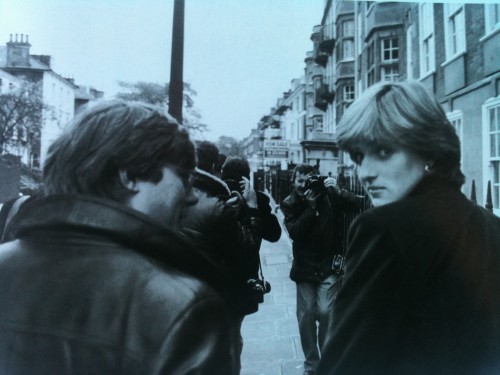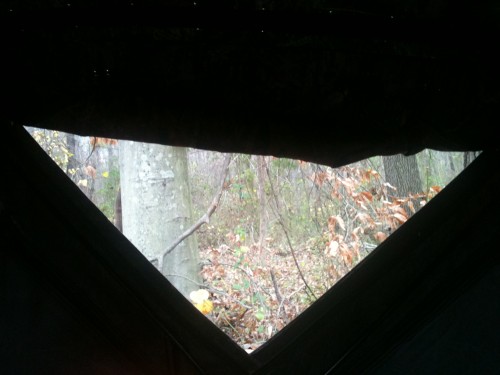12 Arctic Char Consulting a Doctor
2. What you want is reliable quality. Like a Glock. The new Diagram is up. I enjoyed Scott McFarland’s “Teenagers with Glocks,” a take/homage on We Real Cool, a poem Gwendolyn Brooks grew to detest, to not want to read, to not want as her “one hit.” But come on, Gwen. Most poets have zero hits.
1. Rather than trimming their sails, a number of independent booksellers are taking a page from Amazon by producing titles themselves.
3. NANO fiction winter sale all that.
12. How to tie the 5 best fishing knots:
5. I see maybe (emphasize maybe) 2 films a year, as in going to actual movies. I saw Dragon Tattoo thingy. I did not leave depressed. Plot (and this is a plot heavy film) pretty much held together. Acting was passable by today’s standards (Rooney Mara very strong). Cinematography didn’t utilize the setting as it could/should have, but it wasn’t weak or distracting/jarring. So then I stumbled on Nordic Noir. Why would Nordic Noir be so literate/popular? Because:
Norway remains, in most people’s consciousnesses, the most imposing of the Nordic countries, with the ancient legacy of the Vikings still casting a shadow over the country (and foreign perceptions of it).
Many of us do seem to be having an Ingmar Bergman moment right now. We love to slouch on our IKEA sofas watching the characters in “Mad Men” as they ruminate on the loneliness and impotence of their lives while staring silently off into darkened rooms filled with Danish modern furniture.
Three factors underpin the success of Nordic crime fiction: language, heroes and setting.
OK
6. The biggest obstacle to me publishing Wild Grass was finding the courage to self-publish. So many people told me it was a bad idea, but deep down I knew it was what I wanted to do.
7. Look, a Caitlin Horrocks story at the Paris Review. Read this.
8. Need a resolution? I suggest never leave “the house without a gun, a knife and a flashlight” Indeed. Lives saved. Or you could just tip properly.
9. Oliver Stone (yes, him) talking about writing in a way maybe we haven’t seen so much? You should probably go ahead and watch this (and the first part). Audience questions, sometimes conflict, a nuanced and, well, interesting Q & A. Be sure to check out the SPAZ “little boy” at 5 minute mark. Wow.
10. How about Amelia Gray rocking the LA Times? She has a ‘face to watch.’ I agree since her face is highly watchable and her prose is highly readable. Gray is actually my current most-given-book-to-promising-students book I give. And it always works. She rocks them. She is the “gateway drug” to better reading, me thinks.
Ariana Reines & Mercury: An Interview
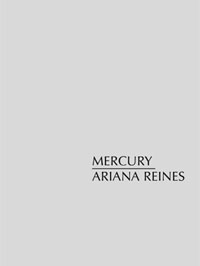 Mercury
Mercury
by Ariana Reines
Fence Books, 2011
128 pages / $16.95 Buy From Fence
Three falls ago, I was in one of my first legit poetry workshops (that particular workshop during which I realized that poetry was going to be one of those things that would be part of my life for forever, like Lyme Disease or an eating disorder) and I was freaking out about being a girl and wanting to write a particular kind of poem and feeling that I wasn’t allowed to do so. My professor, who was/is this very wise man, a carpenter as well as a poet and probably a prophet of some kind, told me I might be interested in reading Ariana Reines. Since I was at the time a very eager and diligent student I went to my room and read every one of her poems I could find online, and as it was right before Christmas I sent my mom the following e-mail that night:
Carina Finn
11/30/09
to Debra, debiallied
Also every book ever written by Ariana Reines instead of just the one. There aren’t that many and they aren’t the expensive because she’s only 26. In fact there are only two, Coeur de Lion and The Cow, three if you count her translation of My Heart Laid Bare by Baudelaire which I would also enjoy. Feel free to pass this along to anyone you know who’s in the market for a Christmas present for me. Those books are now the most important things on my list because they are the most important books that have been written in a very long time.
Because my mother has always bought me any book I have asked for without question, I did get these books for Christmas and I spent all of winter break that year reading them and re-reading them. Since then, because of a lot of happy cosmic circumstances, I’ve had the chance to read her work in graduate classes, write about it, see Ariana read it, and talk to her about it. What follows is a rendition of Facebook messages and e-mails between Ariana and me about her new book, Mercury, which was just released by Fence Books and can be purchased here.
January 2nd, 2012 / 1:00 am
Pen Pals: A Conversation with Nate Slawson
 Nate Slawson is the author of Panic Attack, USA (YesYes, Fall 2011) and two chapbooks, The Tiny Jukebox (H_NGM_N Books) and A Mixtape Called Zooey Deschanel (Line4). Recent work has appeared or is forthcoming in Diode, Handsome, alice blue, Slope, Cannibal, horse less review, Corduroy Mtn., Forklift Ohio, DIAGRAM, Typo, and other places. He lives in Chicago where he teaches and runs cinematheque, an indie press that publishes chapbooks of poetry and prose.
Nate Slawson is the author of Panic Attack, USA (YesYes, Fall 2011) and two chapbooks, The Tiny Jukebox (H_NGM_N Books) and A Mixtape Called Zooey Deschanel (Line4). Recent work has appeared or is forthcoming in Diode, Handsome, alice blue, Slope, Cannibal, horse less review, Corduroy Mtn., Forklift Ohio, DIAGRAM, Typo, and other places. He lives in Chicago where he teaches and runs cinematheque, an indie press that publishes chapbooks of poetry and prose.
I recently corresponded with Slawson about his new book from YesYes, Panic Attack, USA, but as with any great conversation, our subject matter ran the gamut from basketball to Neutral Milk Hotel—sort of like the book itself with its strange and penetrating imagery, its tide-like rhythm-making, its obsessions, its pop culture memories. I pushed Slawson to talk about his poems in uncomfortable ways (for any poet), and he engaged—and set me straight a few times. And then we talked about good, old-fashioned poetics. Slawson felt like my pen pal for a week or so. Below is our conversation in its entirety–unedited. It felt like the thing to do.
AO: Talk to me about the first section of Panic Attack, USA, The Teenage Sonnets. There’s an American tradition of reducing the sonnet form to its most basic constituent part: 14 lines. What’s the significance, for you, in writing the American sonnet?
SLAWSON: Sonnets are rad. The first poems I ever wrote were sonnets, proper iambic, rhyme-schemed sonnets. And I thought they were fun to math. It was kind of like doing math, kind of like a word problem where the train from Poughkeepsie needs to arrive in Baltimore at 6:22 pm with its 140 passengers. But as I read more poems, stumbled upon more poets (my partial travels, chronologically: O’Hara, Lowell, Dickinson, Berryman, Stevens, Natasha Trethewey, Donald Justice), I was enthralled by how form was used. For a young (read: halfwitted) student/writer, there’s something remarkably badass and American about making an established form into something else but still calling that form the form.
AO: I wrote a lot of sonnets early on too. I was writing these intricate things about snails and kids smoking in the streets and, well, my neighborhood in L.A. Eventually, these sonnets got torn apart and recycled into other poems, some of which found their way into my first book. Do you think part of being an American poet is learning how to dismantle (tradition, form)?
NS: I kind of want to read those early Alexis Orgera sonnets. And by kind of, I mean very very. [Nate: I just looked for those old sonnets. They are gone, gone, gone.] A part of me feels I’m always trying to re-write my own version of “Where You’ll Find Me Now” (from Neutral Milk Hotel’s On Avery Island). With the “tear into me” and the “kids in their cars cigarette smoking.” And yeah, I think learning how to dismantle is essential part of being an American poet (all the awesome poets do it). And learning tradition and learning form are the constant, the must. That comes first. We come to form and tradition through different experiences—books, teachers, friends—and proceed with whatever steam our mind-wheels generate.
AO: The Teenage Sonnets, again, as the first section of the book, set into motion the trajectory of the book: grappling with violent obsession, taking road trips, and recalling all kinds of musical influence. Could you talk a little about how these moments inform Panic Attack, USA?
NS: I look at this section as the clumsy (narrative trajectory-wise) introduction to what happens in the rest of the book. Along with the idea of TEENAGE sonnets being scattered and earnest and obsessive and trying so damn hard to convince “you” to show “me” your non-matching underwear.
AO: I would really love it if you’d talk more about the book’s trajectory. If the Teenage Sonnets are the most “earnest,” maybe in terms of teenage naivete, have you written a coming-of-age story that perhaps widens both the world and the heart? Maybe it’s not fair to ask you as the writer. Maybe that’s the job of the reader, but I’m always curious about what the writer sees.
NS: I don’t think I’m smart or skilled enough to write a coming-of-age story. I mean, I hope there’s some of that happening in the book—as the heart explodes it covers the world in its beautiful heart explosion. And that is, in some way, how I wanted the book’s quasi-narrative to function. But it was never all-consuming or mapped out. If you or another reader see a/the story, rad.
AO: In terms of micro-story (vs. meta-narrative), in regard to individual poems I’m very interested in your line breaks. I like the surprise I feel line by line, particularly in the shorter-lined poems. For instance, in “You Are a Saxophone,” you break on articles and prepositions in a way that creates a neat rhythm. You write, “a pain in your heart / sprung from the / blues & which / when I cup my / hand to your chest / be like thunderous / rain like wasps in / a coffee can & thou / nettles & dry river- / bed thou sermon / of fire sister & we / hymnal of matchsticks?” My sense is that you’re breaking lines rhythmically, almost as though you’re rocking back and forth (ala Nate Pritts at a reading) as you write. Yes? No?
NS: Yes x 100! Lines are sonic, and they break or continue because of sound. I’m sure there are theories out there people tell people or teach their students, but I and you and we can do what whatever the hell we like. And I do a lot of rocking: reading books, writing, giving readings. I never sit when I give a reading. I need to dance a little. I need to love-up the microphone. Sometimes people joke me (if you do it to my face it’s cool) and/or I can sense there’s what the fuck? vibe in the crowd, but I think almost everyone realizes 1) it’s something I can’t not do and 2) it’s something that’s a part of the poems. Though I hope some people like the sway of my hips.
Other People: An Interview with Brad Listi

Other People with Brad Listi is a twice-weekly author interview show with a unique literary emphasis. Rather than focusing on their books, Listi asks his writer guests to open up about their lives as writers, what’s driving them, how they work, their personal philosophies and their opinions of other writers’ books. Sometimes an episode seems to be about everything except the subject’s latest book. Whatever they talk about, the shows—which typically clock in at just over an hour—are almost always filled with interesting conversation, and Listi has, in just a few months, had a lot of terrific guests, including Blake Butler, Steve Almond, Victoria Patterson, Joshua Mohr, and Dennis Cooper.
Hearing it for the first time, one wonders why it took so long for this podcast to arrive. The thread that runs through every show is Listi himself: intelligent, self-conscious and completely open about his own idiosyncratic approach to life as a writer and reader. In addition to posting two new episodes of Other People each week and serving as editor at his online culture magazine, The Nervous Breakdown, Listi works as a novelist. His first novel, Attention. Deficit. Disorder. was released in 2007. READ MORE >
Now Showing: Goat in the Snow

Some people are unreasonably unselfish, and Emily Pettit is one of them. An editor for Notnostrums and Factory Hollow Press, she is also the new publisher of jubilat, which, under her thumb, just released a bad motherfucker of an issue (see: Julia Cohen, Michelle Taransky, James Tate, Rachel Glaser, Dara Wier, lots!). Her devotion to art is exemplary and climbs no ladder, but aims at making our anxious little world a bigger, bettered one. It should come then as no surprise then that her poems, too, are of the giving kind; and her new book Goat in the Snow, now available for pre-order from BIRDS LLC, gives and gives and gets it right. Im not one to blurb (ed note: bullshit), but when a wise old man once again feels the change coming in his bones and scrys the truth, you listen:
Her kindness is always ahead of us, anticipating the problems we will or won’t run into, and we always end up in a different, precise place than the one we started out from, as she reassuringly tells us: “You know/ you know you know. It’s all uncertainty/ and your neck. You walk slowly/ in a calm voice.” Goat In The Snow is multicolored, ever-changing, a delight to try to clasp. –
JOHN ASHBERRY
Interview with Bradford Morrow
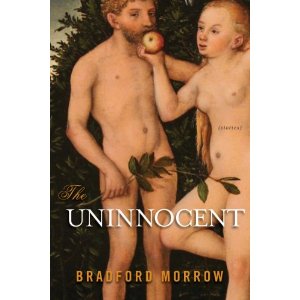 As both author and editor, Bradford Morrow, has been a major figure on the American literary scene for more than three decades. To date, he has published six novels (including The Almanac Branch, Trinity Fields and, most recently, The Diviner’s Tale), a novella (Fall of Birds), five collections of poetry, two illustrated books (including A Bestiary, a collaboration with Eric Fischl, Kiki Smith, Richard Tuttle, and fifteen other contemporary artists) and has edited nine collections of poetry and prose. Morrow is also the founding editor of the literary magazine, Conjunctions, which will publish its fifty-eighth issue this spring. His first collection of short fiction, The Uninnocent, has just been published by Pegasus Books. —Stephen O’Connor
As both author and editor, Bradford Morrow, has been a major figure on the American literary scene for more than three decades. To date, he has published six novels (including The Almanac Branch, Trinity Fields and, most recently, The Diviner’s Tale), a novella (Fall of Birds), five collections of poetry, two illustrated books (including A Bestiary, a collaboration with Eric Fischl, Kiki Smith, Richard Tuttle, and fifteen other contemporary artists) and has edited nine collections of poetry and prose. Morrow is also the founding editor of the literary magazine, Conjunctions, which will publish its fifty-eighth issue this spring. His first collection of short fiction, The Uninnocent, has just been published by Pegasus Books. —Stephen O’Connor
O’Connor: You call your book The Uninnocent. I am very interested in the idea of “un-innocence.” How do you distinguish it from guilt (not in the sense of the emotion, but of being responsible for a wrong act)?
Morrow: The way I think about it, if innocence is a state of grace, an absence of inner darkness, uninnocence is its antithesis: a state of perpetual shadow, one in which serenity and goodness are distant dreams, if that. While the darkness of the uninnocent isn’t always calculating—thepeople in these stories are not all born wicked—through the agency of some flaw or naïveté they simply break bad. Even before they’re guilty of anything, many of them never seem to be fated for an innocent life. The narrator of the opening story, “The Hoarder,” openly admits of his childhood self, “I was a weird little bastard.” He wasn’t yet a perpetrator of any misdeed, but innocence didn’t seem even to him to be a defining part of his character. One could fairly ask why coin the word “uninnocent” when the language is so replete with terms for the reprehensible, the blameworthy, the delinquent, the wicked. But while many of the people in my stories behave in ways that society appropriately considers wrong, or even depraved, my approach to writing about these individuals was from the inside out. It was important to me to locate a deeper grace or humanity within them and use that as an empathic starting place—a tentative innocence they themselves often do not recognize—and weave their failings around that fragile locus. Another aspect of uninnocence in the book is that so many are never caught or convicted of anything, and when they are restrained by authorities, they’re often convinced the system is working against them, don’t understand why the system has targeted them. John, the narrator of “All the Things That are Wrong with Me,” feels perfectly justified in doing the disastrous things he’s done and can’t understand why he’s been separated from normal society, forced to reside in a kind of Cuckoo’s Nest asylum with others who, unlike himself, are truly mad. And I more or less see where he’s coming from, though I disapprove of his basic vigilantism when he exacts eye-for-an-eye, tooth-for-a-tooth punishment on a kid who’s behaved sadistically toward his dog. READ MORE >
14 iSidelong iSpringlizards Lifted (what were they doing there?!) from my iHot Velveeta
1. That time travel/forum flash you saw once; it hit you like lobbed Pringles. You wondered where it was, something.
At 18:06:59, BigChill wrote:
Take it easy on the kid, SilverFox316; everybody kills Hitler on their first trip. I did. It always gets fixed within a few minutes, what’s the harm?
3. Yo, fantasy novel pitch: You ford the dawn. You have a ring and/or sword (naturally–all Fantasy is oddly derivative of Tolkien). You put the ring/sword down (finally). I unwrap you an Interesting Sandwich. Here it is: These Iraq photos were taken through Humvee windows and military-issue night vision goggles. Sort of green/glow/combustible clap/badass. Do eyeball:
2. Shopping? Well, think on this: I suggest a Scientific (wow, it’s scientific!) Talking Meat Thermometer. (It only speaks English, Spanish, German, French, and Danish. That’s sketchy.)
4. Largest collection of fish posters I’ve seen since noon-thirty.
5. Wonderful, wonderful essay by Jim Harrison, for those that worship wine.
I have long since publicly admitted that I seek spirituality through food and wine. In France, Italy, and Spain, I seem more drawn to markets and cafés than to churches and museums. Too many portraits of bleeding Jesus and his lachrymose Momma make me thirsty. The Lord himself said on the cross, “I thirst” and since our world itself has become a ubiquitous and prolonged crucifixion it is altogether logical that we are thirsty.
14. Does anyone here write by hand? I’d like to hear you talk about that, why, why it’s necessary to you, why brain to hand to actual felt page is a preferred—and essential—difference than tap, tap, tap, glowing, white pretty pixel monitor fat, white face. Tote me some knowledge.
LIES/ISLE PRESENTS: Unrepairable by Russ Woods
Since it’s the terrible day of capital-death known as BLACK FRIDAY, I’ve decided that a more positive gesture, to assuage all the guilt of those who are pimp their souls to save a buck (we’ve all been there in some regard), is needed. Thus, I’d like to publish a brilliant work of literature that specifically makes use of the medium it’s being published on; namely THE INTERNET. Russ’s work takes a note from old text-based RPGs (MUDs to be more specific) on telnet, an entirely antiquated form that, as Russ’s work proves, is ripe for exploration.
Russ Woods lives in Chicago and edits Red Lightbulbs with his wife Meghan Lamb.
Click “more” to read Russ Woods’s brilliant Unrepairable.
READ MORE >
Been there, bought the T-Shirt: Interview with Dan Boehl
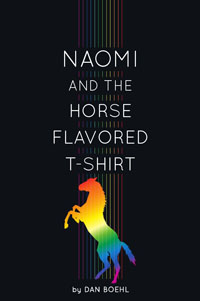 Naomi and the Horse-Flavored T-Shirt
Naomi and the Horse-Flavored T-Shirt
by Dan Boehl
Self-published, 2011
200 pages / $12.99 Buy PB from Lulu, Buy Kindle from Amazon
Forgetting books on airplanes should be a genre of poetry community service. I was in Terminal A of the Baltimore airport when I realized my copy of Dan Boehl’s Kings of the F**king Sea was still on the plane in Terminal B. No, I was only halfway through! So I hurried back to rescue it from the pocket with the barf-bag and instruction manual on how to save yourself with a seat cushion once you land in the ocean. Before the plane pushed, the gate agent let me search for the book, disturbing a few passengers, finally spotting the Kings cover atop a recent issue of SkyMall. I asked the passenger who had taken my place if he could hand it to me. He grabbed Kings, processed the cover, and said frankly, “Oh. Yes. Here. I wouldn’t be reading that.”
November 18th, 2011 / 12:00 pm

